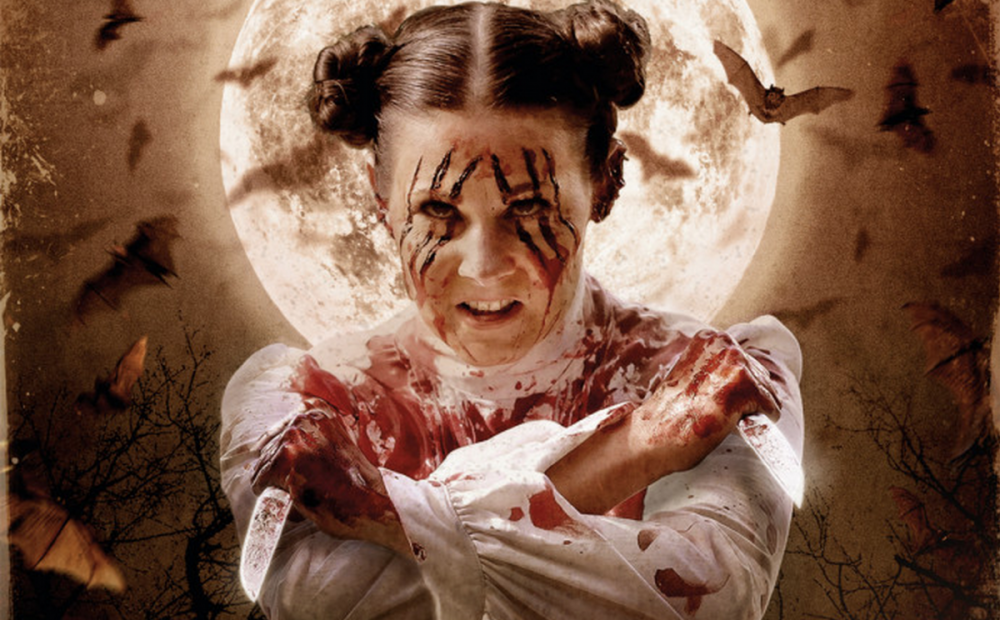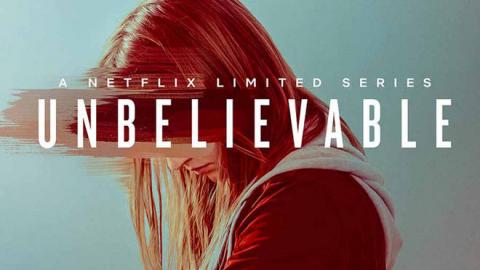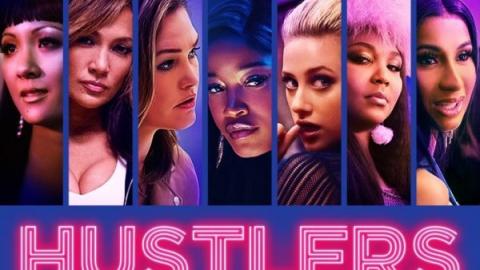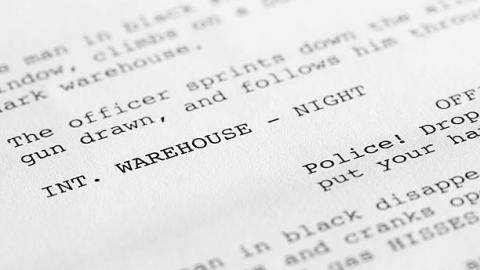Movie Reviews: "Helen Keller Versus Nightwolves" So Campy You Don't Know What to Laugh At
Share with friends

Ross Patterson's new film is groping in the dark for humor
While Ross Patterson's written a couple of movies now and FDR: American Badass was funnier than a shot in the leg, his new script /directorial debut, Helen Keller vs. The Nightwolves is groping in the dark for humor.
Not to say that it is a complete miss; there are good moments, but all in all, it feels less like a movie that you go to see and more like one that happens to you. You know the sort: You're drunk, it's 2 AM, your friend with questionable taste in films turns on Netflix, and there's a girl wielding dual knives, covered in blood, with a title like Helen Keller vs. The Nightwolves over her head. It's ok. It happens to the best of us.
Helen Keller may not be on your home screens just yet, but I have no doubt that she'll get there before too long.
Now, as far as reviewing films, this is one of those that you have to grade on a sliding scale. I would be completely lost trying to compare it to anything, because in theory it's going for a higher production Troma feel, and its closest neighbor in this category is its predecessor.
The entire movie is made to be bad. It's trying for camp, and that makes it difficult to tell what's bad by design and what's bad by accident. Again, that's not to say there's no good in it, just that there's so much bad, you aren't sure what you're supposed to laugh at.
With a premise like Helen Keller killing the wolves who murdered her family and rendered her deaf and blind, though, I suppose the fair answer is you should just try and laugh at all of it. And that's really where the movie fails.
The dialogue is crude, coarse, sexual and offensive, and only about half of the punchlines felt like they landed. FDR was similar, but somehow it worked better. Possibly because it was wittier. Possibly because it felt more like a real movie and less like film school students running around in the woods.
The movie is interrupted at least a few times to jump to scenes that have nothing to do with the movie-- narrative by the director (as a character), a commercial for a lawyer-- that sort of thing. And knowing that it got its finishing funds through an unsuccessful indiegogo campaign, it's difficult to know what is there because it was part of the director's vision, and what is there as a reward for a donation.
For example, there is an unexplained overweight “geisha” who is clearly a white man in drag, who appears several times in the same three second clip, added in between the actors' lines. The credits dedicate the film to the memory of Dale Earhart. (For those of us who don't follow NASCAR and don't feel like googling, he died fifteen years ago.) The memorial title card is immediately followed by a cell phone picture of two men covered in five bottles of ranch dressing.
The effects are cringe-worthy, again, intentionally so, but it does make it legitimately difficult to watch. It ends up repeating clips several times in a row, and ultimately feels like it could have been a much shorter movie than it ended up being.
And beyond the utter weirdness that feels like Microsoft Paint and Final Cut Pro's ADHD addled illegitimate lovechild, this is one of those films that completely throws the concept of anachronism out the window.
Sure, they live in a log cabin. But the transition scenes are archive footage of diners from the 50s. (not the same diner, either, mind you, despite the interior location being the same place)
The wolf pack that attacks is made up of three plushies-- at least one of which is a collie, and one hero stuffed wolf that looked like it came right off of the pages of badtaxidermy.com
And the acting is inconsistent, which is a problem that very certainly can be blamed on direction.
Barry Bostwick may well be the King of Camp, and you need only mention his name to draw up visions of The Rocky Horror Picture Show or Megaforce, but that kind of cult classic, this is not.
Even though it wants so much to be.
There were high points, though-- Helen Keller versus the Jenga tower was fantastic, Jesse Merlin and his operatic singing voice was another, and of course, Barry Bostwick's special brand of smirkingly blunt delivery did wonders with the script, but as far as needing to see the movie when it comes to theatres on Halloween, I'd say give it a pass. It'll be streaming to your livingroom or laptop soon enough.




